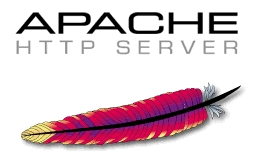Server software company
Apache has decided to take matters into their own hands in the ongoing battle
involving Microsoft’s Do-Not-Track setting on Internet Explorer 10.
A new patch will be added
to all Apache server software that ignores browser Do-Not-Track requests if the
requesting browser is Internet Explorer. Since Apache is the most popular
software on servers hosting websites, this has pretty serious implications.
If you haven’t been keeping
up, Microsoft announced several months ago that Internet Explorer 10 will have
the “Do-Not-Track” setting checked by default. In most browsers, ad companies
place cookies that allow them to track your habits and clicks as you bounce
around the Internet. This tracking is great for advertising because it allows
companies to sell very targeted ad space at a premium. The tracking is bad for
people because it’s creepy.
 |
| This is Roy. He loves tracking software. |
Roy Fielding, the scientist
who created the patch, wrote this on the topic:
The only reason DNT exists is to express a non-default option. That's all it does. It does not protect anyone's privacy unless the recipients believe it was set by a real human being, with a real preference for privacy over personalization.
Microsoft deliberately violates the standard. They made a big deal about announcing that very fact. Microsoft are members of the Tracking Protection working group and are fully informed of these facts. They are fully capable of requesting a change to the standard, but have chosen not to do so. The decision to set DNT by default in IE10 has nothing to do with the user's privacy. Microsoft knows full well that the false signal will be ignored, and thus prevent their own users from having an effective option for DNT even if their users want one. You can figure out why they want that. If you have a problem with it, choose a better browser.[github.com]
So, Fielding argues that
for the DNT request to be valid, it must be implemented by a human being, not
turned on by default in a browser. Ok, fine, weird perspective, but whatever. But
the problem with this patch is that even if a user would very consciously like
to turn on DNT, if that user is on Internet Explorer, his request will be
ignored.
We suggest stopping all
tracking software with a VPN like SumRando.


